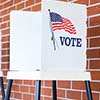U.S. Supreme Court Declines to Hear Argument On K.M. v. Tustin Unified School District

March 2014
Number 19
School districts must comply with the Individuals with Disabilities Education Act (IDEA) when developing an appropriate IEP for deaf or hard-of-hearing (DHH) students, and must also comply with the Americans with Disabilities Act (ADA) to ensure their needs for effective communication are met. As previously reported by Lozano Smith, in August 2013, the U.S. Ninth Circuit Court of Appeals held in K.M. v. Tustin Unified School District (9th Cir. 2013) 725 F.3d 1088, that two school districts' compliance with their obligations to DHH students under the IDEA did not conclusively establish compliance with Title II of the ADA, or preclude the students from raising claims under the ADA. The U.S. Supreme Court recently denied review of this decision.
After the Ninth Circuit's decision, defendants Tustin and Poway Unified School District unsuccessfully sought rehearing and rehearing en banc before the Ninth Circuit. On behalf of the Education Legal Alliance of the California School Boards Association (CSBA), Lozano Smith prepared and filed an amicus curiae brief in support of such efforts. CSBA argued the Ninth Circuit's opinion in K.M. leads to conflicting responsibilities for school districts. Under K.M., districts will have to meet the IDEA's requirements of FAPE for DHH students relative to effective communication devices and will also have to satisfy a differing standard and set of requirements for DHH students under the ADA.
Following denial of rehearing by the Ninth Circuit, the school district defendants sought review of the opinion by the United States Supreme Court. Lozano Smith was asked to support this effort and submitted an amicus curiae brief supporting the grant of review on behalf of the CSBA and the National School Boards Association. The Supreme Court, however, denied review on March 3, 2014.
The case will now be remanded to the federal district court to determine whether or not the school districts actually violated the ADA by not providing the DHH students with access to their desired communication devices. While the final outcome of this case remains to be seen, the Ninth Circuit's ruling that satisfaction of the IDEA's requirements does not automatically satisfy the ADA's requirements when it comes to a DHH student's effective communication devices is controlling.
School districts should keep in mind that Title II of the ADA requires public entities to provide reasonable accommodations to eligible individuals. In doing so, it is prudent to engage in an interactive process to determine the nature and extent of such accommodations. While public entities are not required to provide any accommodations that result in a fundamental alteration in the nature of the services provided, or cause undue financial or administrative hardship, this is a difficult standard to satisfy.
For a complete overview of the Ninth Circuit's opinion in K.M., please refer to our previous Client News Brief. We will continue to follow the K.M. Case and provide any updates following remand to the district court.
For further detailed information regarding requirements under the IDEA, ADA, and other relevant laws, please feel free to contact one of our eight offices located statewide. You can also visit our website, follow us on Facebook or Twitter, or download our Client News Brief App.
Number 19
School districts must comply with the Individuals with Disabilities Education Act (IDEA) when developing an appropriate IEP for deaf or hard-of-hearing (DHH) students, and must also comply with the Americans with Disabilities Act (ADA) to ensure their needs for effective communication are met. As previously reported by Lozano Smith, in August 2013, the U.S. Ninth Circuit Court of Appeals held in K.M. v. Tustin Unified School District (9th Cir. 2013) 725 F.3d 1088, that two school districts' compliance with their obligations to DHH students under the IDEA did not conclusively establish compliance with Title II of the ADA, or preclude the students from raising claims under the ADA. The U.S. Supreme Court recently denied review of this decision.
After the Ninth Circuit's decision, defendants Tustin and Poway Unified School District unsuccessfully sought rehearing and rehearing en banc before the Ninth Circuit. On behalf of the Education Legal Alliance of the California School Boards Association (CSBA), Lozano Smith prepared and filed an amicus curiae brief in support of such efforts. CSBA argued the Ninth Circuit's opinion in K.M. leads to conflicting responsibilities for school districts. Under K.M., districts will have to meet the IDEA's requirements of FAPE for DHH students relative to effective communication devices and will also have to satisfy a differing standard and set of requirements for DHH students under the ADA.
Following denial of rehearing by the Ninth Circuit, the school district defendants sought review of the opinion by the United States Supreme Court. Lozano Smith was asked to support this effort and submitted an amicus curiae brief supporting the grant of review on behalf of the CSBA and the National School Boards Association. The Supreme Court, however, denied review on March 3, 2014.
The case will now be remanded to the federal district court to determine whether or not the school districts actually violated the ADA by not providing the DHH students with access to their desired communication devices. While the final outcome of this case remains to be seen, the Ninth Circuit's ruling that satisfaction of the IDEA's requirements does not automatically satisfy the ADA's requirements when it comes to a DHH student's effective communication devices is controlling.
School districts should keep in mind that Title II of the ADA requires public entities to provide reasonable accommodations to eligible individuals. In doing so, it is prudent to engage in an interactive process to determine the nature and extent of such accommodations. While public entities are not required to provide any accommodations that result in a fundamental alteration in the nature of the services provided, or cause undue financial or administrative hardship, this is a difficult standard to satisfy.
For a complete overview of the Ninth Circuit's opinion in K.M., please refer to our previous Client News Brief. We will continue to follow the K.M. Case and provide any updates following remand to the district court.
For further detailed information regarding requirements under the IDEA, ADA, and other relevant laws, please feel free to contact one of our eight offices located statewide. You can also visit our website, follow us on Facebook or Twitter, or download our Client News Brief App.
As the information contained herein is necessarily general, its application to a particular set of facts and circumstances may vary. For this reason, this News Brief does not constitute legal advice. We recommend that you consult with your counsel prior to acting on the information contained herein.





